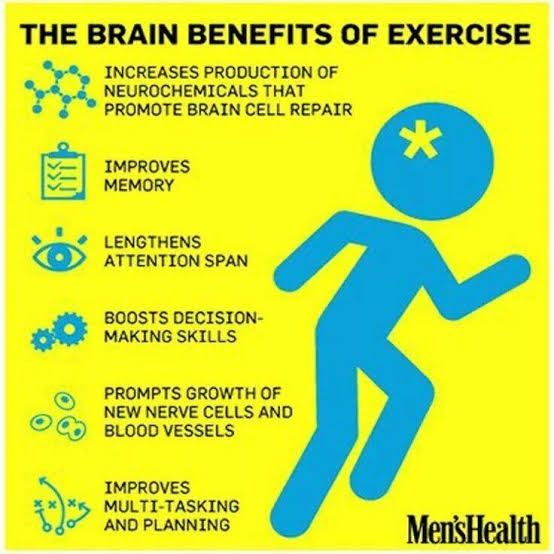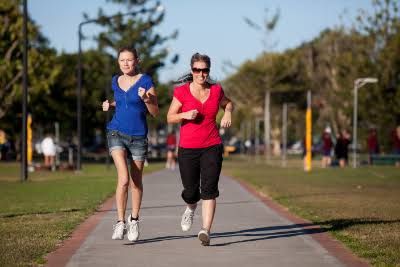Physical Activity-Why It Is Important For Health?
Feb 08, 2019 • 4 views
You've probably heard countless times how exercise is "good for you." But did you know that it can actually help you feel good, too? Getting the right amount of exercise can revive up your energy levels and even help improve your mood.
Rewards and Benefits
Experts recommend that teens get 60 minutes or more of moderate to vigorous physical activity each day. Here are some of the reasons:
Exercise benefits every part of the body, including the mind.Exercising causes the body to make chemicals that can help a person to feel good. Exercise can help people sleep better. It can also help some people who have mild depression and lowself-esteem. Plus, exercise can give people a real sense of accomplishment and pride at having achieved a certain goal — like beating an old time in the 100-meter dash.
Exercise can help you look better.People who exercise burn more calories and look more toned than those who don't. In fact, exercise can help keep your body at ahealthy weight.
Exercise helps people lose weight and lower the risk of some diseases.Exercising regularly decreases a person's risk of developing certain diseases, includingobesity,type 2 diabetes, andhigh blood pressure.
Exercise can help a person age well.This may not seem important now, but your body will thank you later. For example, osteoporosis (a weakening of the bones) can be a problem as people get older. Weight-bearing exercise — like jumping, running, or brisk walking — can help keep bones strong.

What's Right For Me?
One of the biggest reasons people drop an exercise program is lack of interest: If what you're doing isn't fun, it's hard to keep it up. The good news is there are tons of different sports and activities to try to see which one inspires you.
When picking the right type of exercise, it can help to consider your workout personality. For example, do you like to work out alone and on your own schedule? If so, solo sports like running, biking, orsnowboardingcould be for you. Or do you like the shared motivation and companionship that comes from being part of a team? School sports, intramural leagues, club teams, and pick-up games are great ways to stay active with others.
Exercise tip
To reduce your risk of cardiovascular disease, walk whenever possible. Think to yourself, can you do a particular journey, or part of that journey, on foot? Think twice before mindlessly hopping into the car. Find ways to add activity to your day – it doesn’t need to be structured exercise. If you already walk, try upping the pace. Weather and work permitting, go for a walk at lunchtime. Even a 15-minute brisk pace is better than sitting by your desk.
If You Want to Just Maintain a Healthy Lifestyle

If all you want to maintain a healthy lifestyle, your best bet is to work out all your muscles in a few different ways. Parr notes that for most people, the usual recommendation of30 minutes of moderate intensity workouts a day—including walking, jogging, swimming, or biking—is a good starting point for most people.

That said, if you don't have a lot of time, exercises like theseven-minute full workoutorthe 20-minute workoutmake it a bit easier to fit a workout into your schedule. You won't see big fitness gains, but your overall health will remain consistent.
